QuestionI have an 11 month old golden retriever that has just graduated from obedience school but failed to learn who is boss. She,or maybe we, have more training to do. She is very sweet, although she has developed some kennel aggression toward our Sheltie. When we put her in her crate, with a chew toy, or if she goes in there voluntarily, she starts growling and snapping at our Sheltie if he gets near the crate, but she does not do that with the same chew toy outside of the cage. She may push him away with her head, or a warning growl but has never attacked. She lays on her back when they play and lets him jump all over her biting and pulling on her ears, etc., and she tolerates all of it. It seems to be just the crate problem which the trainer called kennel aggression.
Anyway, back to the jumping. We tell her over and over "off" when she starts to jump but it has not stopped. She was a very mouthy puppy and has gotten better about that but I had a neighbor over yesterday that is not exactly a dog lover, and Katie jumped on her a couple of times, one time nipping her. Anyone who meets our dog thinks she is wonderful and sweet but I tend to think this could be a more serious problem. She was the dog used in the training class as the example because she learned so fast but we bring her home and it's like she never went. I was so embarrassed with my neighbor and have considered sending Katie to a trainer that my vet recommended where they actually stay for a couple of weeks. It is pretty expensive and I tend to worry about their methods, since I'm not there, but I feel like my vet would not have recommended it if they were abusing animals. Sorry this went on so long but we love our dog and she really needs more obedience.
AnswerYes, I routinely warn that that can happen. The key to most behavior problems is approaching things using the dog's natural instincts. Dogs see all the people and dogs in the household as a pack with each having their own rank in the pack and a top dog. Life is much easier if the 2 legged pack members outrank the 4 legged ones. You can learn to play the role of top dog by reading some books or going to a good obedience class. A good obedience class or book is about you being top dog, not about rewarding standard commands with a treat. Start at http://www.dogsbestfriend.com/ For more on being top dog, see http://www.dogbreedinfo.com./topdogrules.htm
If the boot camp doesn't include considerable instruction time for you, it won't do much good either. Reading the above and applying it will be more effective than sending the dog away.
Consistently is very important in correcting jumping and other problems. Quickly correcting him each and every time he jumps on somebody is very important. He must never get the affection he wants. A number of things have been used. One of the most gentle is to grab his front paws and hold him up. The traditional knee to the chest or step on his paws are fading from use. As part of the the trend away from negative methods, just step backwards leaving his front feet to fall to the floor. After a few tries, the dog may just stand there looking confused.
Young Labs, which I know best, and other puppies tend to very bad about biting. You see a litter of them, and all the ones that are awake are biting another one or themselves. I am not even sure they realize that when they are alone, if they quit biting, they would quit being bitten. At 3 to 4 months they are getting their adult teeth, and it seems they spend every waking moment biting or chewing. One thing you can do at that stage is to knot and wet a piece of cloth. Then freeze it. The cooling will soothe the gums. Only let the puppy have it when you are there to watch it. I maintain a Lab's favorite chew toy is another Lab. Otherwise they settle for any person they can. They keep hoping to find one that won't yelp, jerk their hand away, and leave.
You just have to keep on correcting them, hundreds of times, not dozens. Provide sturdy, safe toys such as Kongs and Nylabones. Avoid things they can chew pieces off and choke on them. Keep them away from electrical cords. Crates are essential for most young Labs and other dogs.
It is much easier to teach a puppy not to jump up and bite you than others. We are struggling with a rather difficult 6 month old lab. While she is doing fairly well with us, we still have trouble with her out in public. Those that tolerate it, or worse yet, encourage it, are no help at all. Having her on leash and giving her a good pop helps.

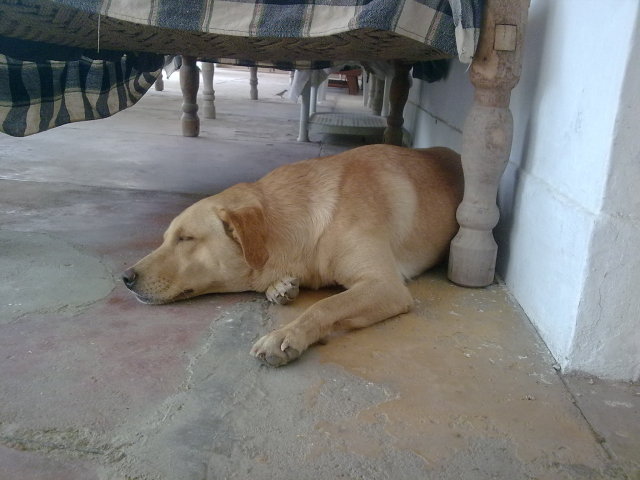 confrmation of lab retriever breed
Questionmy lab
QUESTION: sir can u possibly asur
confrmation of lab retriever breed
Questionmy lab
QUESTION: sir can u possibly asur
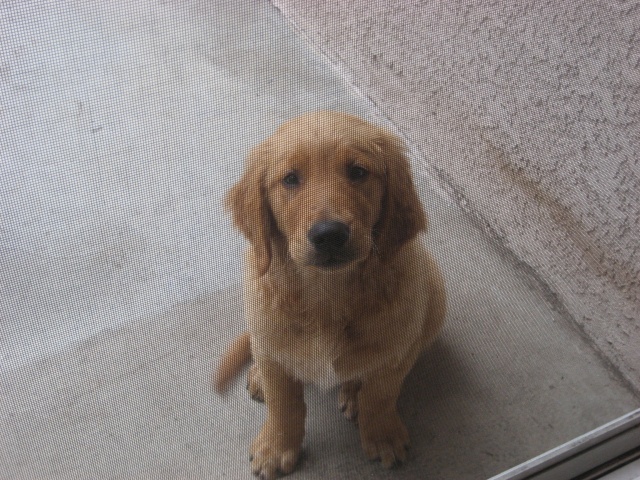 Walking
Question
My 1 year old golden retriever is very hyper-
Walking
Question
My 1 year old golden retriever is very hyper-
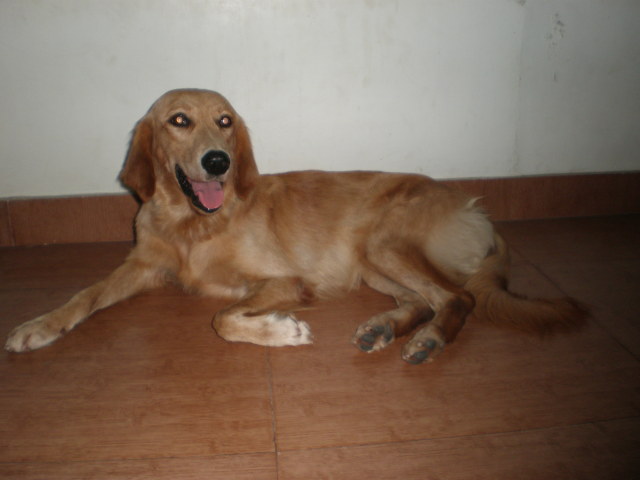 Food for a 8 months GR
QuestionRini
QUESTION: I have a 8 months old fem
Food for a 8 months GR
QuestionRini
QUESTION: I have a 8 months old fem
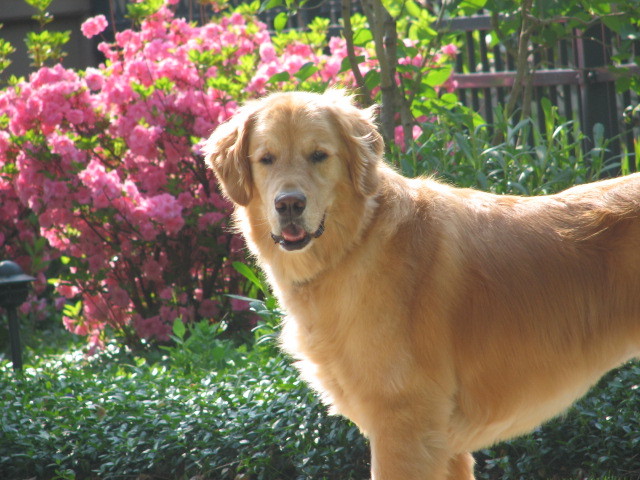 Goldens and cancer
Question
Duke
I just read your response to a women who
Goldens and cancer
Question
Duke
I just read your response to a women who
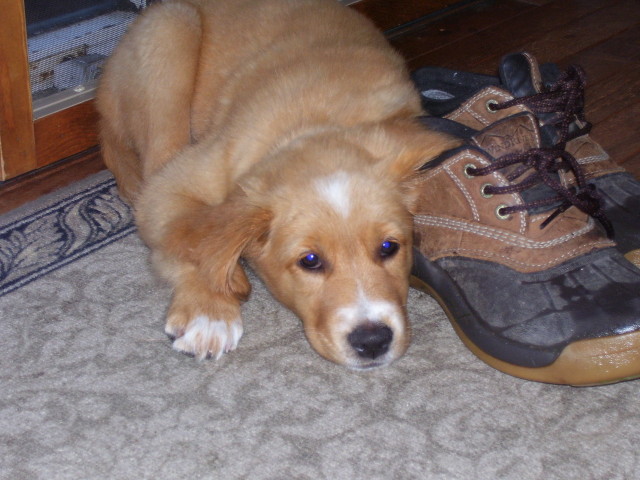 Pure golden with lots of white
Question
Abby 9 weeks
I bought a purebred golden
Pure golden with lots of white
Question
Abby 9 weeks
I bought a purebred golden